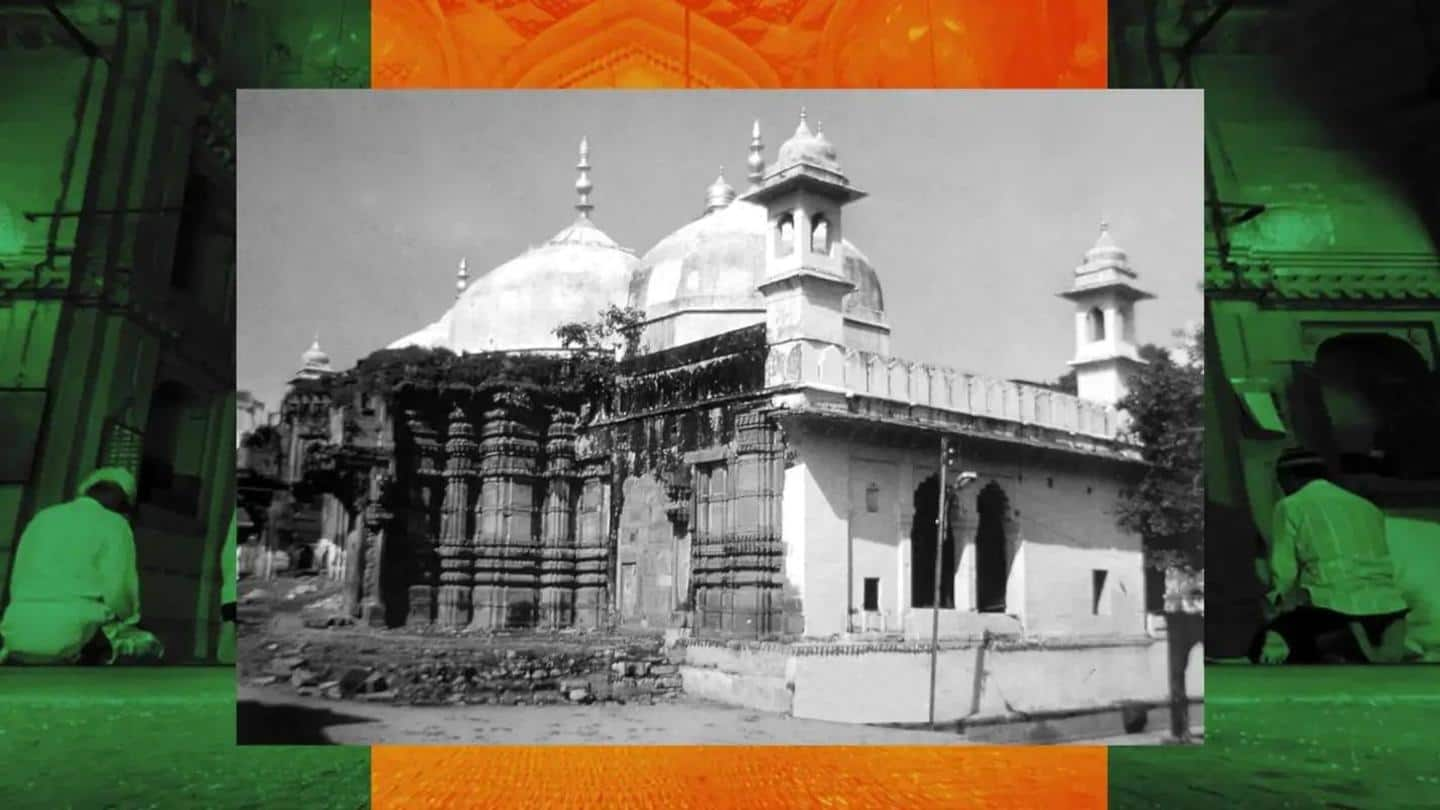
Varanasi's Gyanvapi Mosque: Videography survey concludes peacefully on day 1
What's the story
As per court orders, the videography survey of Varanasi's Gyanvapi Mosque complex resumed on Saturday amid tight security arrangements.
The survey's first-day proceedings were overall peaceful, according to reports.
Now, the survey will resume on Sunday morning.
The mosque's management committee had stated that it will cooperate with the team assigned for the task by the district court.
Context
Why does this story matter?
The Gyanvapi Mosque issue is on the lines of the Ayodhya dispute, which was resolved with a Supreme Court order in 2019.
In 1991, several petitioners moved a Varanasi court, contending the mosque was built by the Mughal emperor Aurangzeb after demolishing a Hindu temple in 1669.
They demanded that the mosque be removed and the land be handed over to Hindus.
Fact
Survey was earlier halted due to protests by locals
The survey was halted due to a protest by local Muslims who demanded that Ajay Kumar Mishra, the court commissioner conducting the survey, be replaced.
According to the District Magistrate, Kaushal Raj Sharma, an important meeting with all stakeholders took place on Friday, whereby he appealed to them to assist them in the commission's assignment as well as the maintenance of public order.
Local court
What happened in the Varanasi trial court on Thursday?
On Thursday, a Varanasi court denied the request to change the court commissioner undertaking a videography survey of the Gyanvapi Mosque complex, ordering the assignment to be completed by Tuesday (May 17).
The district court also appointed two more attorneys to assist the commissioner in the survey of the mosque, which is located near the famed Kashi Vishwanath temple.
History
Varanasi court allowed survey based on women's petition
On April 18, 2021, five Delhi-based women sought permission from the Varanasi court for year-long, daily worship of deities Shringar Gauri, Lord Ganesh, Lord Hanuman, and Nandi in the mosque complex.
Currently, devotees are allowed to worship Goddess Shringar Gauri there only on the fourth day of Chaitra Navratri.
Later, on April 26, 2022, the court ordered a survey and videography by the commissioner.
Context
Controversy began in 1991 after petitions against mosque
In 1991, lawyer Vijay Shankar Rastogi filed a petition in a Varanasi court as the "next friend" of the Kashi Vishwanath Mandir's presiding deity.
Rastogi had argued Maharaja Vikramaditya built a temple 2,050 years ago on the site where the Gyanvapi Mosque currently stands.
Other petitioners claimed Aurangzeb built the mosque in the 17th century by removing a portion of the Kashi Vishwanath Mandir.
Background
What all has happened in the matter since 1991?
The 1991 Gyanvapi case was on hold for several years after the Allahabad High Court suspended the hearing.
However, the case resurfaced in 2019 following the Supreme Court's decision in the Babri Masjid-Ram Janmabhoomi case.
The Allahabad HC's decision was based on the Places of Worship Act, 1991, forbidding any changes to a worship place's religious character as it was on August 15, 1947.
Do you know?
The Places of Worship Act, 1991, is upheld by SC
The Supreme Court has consistently upheld the Places of Worship (Special Provisions) Act, 1991, while granting an exception only in the Babri Masjid-Ram Janmabhoomi case, stating in the judgment itself that the law would apply in all the other cases.